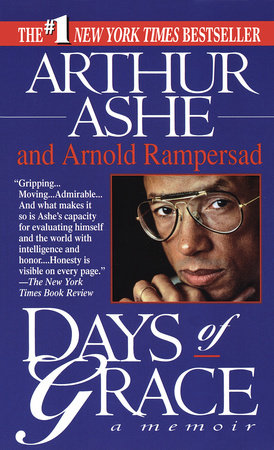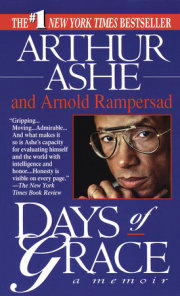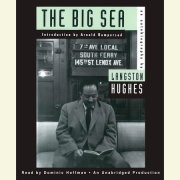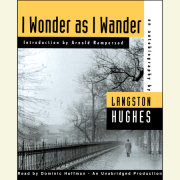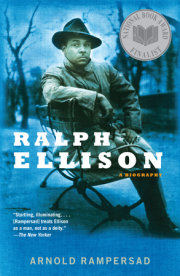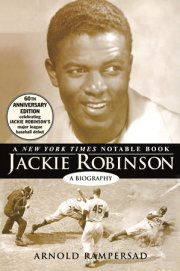Chapter One
My Outing
IF ONE’S REPUTATION is a possession, then of all my possessions, my reputation means most to me. Nothing comes even close to it in importance. Now and then, I have wondered whether my reputation matters too much to me; but I can no more easily renounce my concern with what other people think of me than I can will myself to stop breathing. No matter what I do, or where or when I do it, I feel the eyes of others on me, judging me.
Needless to say, I know that a fine line exists between caring about one’s reputation and hypocrisy. When I speak of the importance to me of my reputation, I am referring to a reputation that is deserved, not an image cultivated for the public in spite of the facts. I know that I haven’t always lived without error or sin, but I also know that I have tried hard to be honest and good at all times. When I fail, my conscience comes alive. I have never sinned or erred without knowing I was being watched.
Who is watching me? The living and the dead. My mother, Mattie Cordell Cunningham Ashe, watches me. She died when I was not quite seven. I remember little about her, except for two images. My last sight of her alive: I was finishing breakfast and she was standing in the side doorway looking lovingly at me. She was dressed in her blue corduroy dressing gown. The day was cool and cloudy, and when I went outside I heard birds singing in the small oak tree outside our house. And then I remember the last time I saw her, in a coffin at home. She was wearing her best dress, made of pink satin. In her right hand was a single red rose. Roses were her favorite flower, and my daddy had planted them all around the house; big, deep-hued red roses.
Every day since then I have thought about her. I would give anything to stand once again before her, to feel her arms about me, to touch and taste her skin. She is with me every day, watching me in everything I do. Whenever I speak to young persons about the morality of the decisions they make in life, I usually tell them, “Don’t do anything you couldn’t tell your mother about.”
My father is watching me, too. My father, whose mouth dropped open when he first saw Jeanne, my wife. She looked so much like my mother, he said. He is still a force in my life. Some years ago, before he died of a stroke in 1989, I was being interviewed by the television journalist Charlayne Hunter-Gault in her home.
“Tell me, Arthur,” she said, laughter in her voice, “how is it that I have never heard anyone say anything bad about you? How is it that you have never cursed an umpire, or punched an opponent, or gotten a little drunk and disorderly? Why are you such a goody-goody?”
I laughed in turn, and told the truth.
“I guess I have never misbehaved because I’m afraid that if I did anything like that, my father would come straight up from Virginia, find me wherever I happen to be, and kick my ass.”
When I told that story not long ago on Men’s Day at the Westwood Baptist Church in Richmond, Virginia, everyone smiled and some folks even laughed. They knew what I was talking about, even those few living in that little enclave of blacks surrounded by whites in Richmond who had never met my father. They knew fathers (and mothers) exactly like him, who in times past would come up and find you wherever you were and remind you exactly who you were and don’t you forget it. You were their child, that’s who.
My father was a strong, dutiful, providing man. He lived and died semi-literate, but he owned his own home and held jobs that were important to him and to people in the community where we lived. His love and his caring were real to me from that Sunday morning in 1950 when he sat on the bottom bunk bed between my brother Johnnie and me and told us between wrenching sobs that our mother had died during the night. From that time on he was father and mother to us. And the lesson he taught above all was about reputation.
“What people think of you, Arthur Junior, your reputation, is all that counts.” Or, as I heard from so many older people as I grew up, “A good name is worth more than diamonds and gold.”
What others think of me is important, and what I think of others is important. What else do I have to go by? Of course, I cannot make decisions based solely on what other people would think. There are moments when the individual must stand alone. Nevertheless, it is crucial to me that people think of me as honest and principled. In turn, to ensure that they do, I must always act in an honest and principled fashion, no matter the cost.
One day, in Dallas, Texas, in 1973, I was playing in the singles final of a World Championship Tennis (WCT) tournament. My opponent was Stan Smith, a brilliant tennis player but an even more impressive human being in his integrity. On one crucial point, I watched Smith storm forward, racing to intercept a ball about to bounce a second time on his side of the net. When the point was over, I was sure the ball had bounced twice before he hit it and that the point was mine. Smith said he had reached the ball in time. The umpire was baffled. The crowd was buzzing.
I called Smith up to the net.
“Stan, did you get to that ball?”
“I did. I got it.”
I conceded the point. Later, after the match—which I lost—a reporter approached me. Was I so naïve? How could I have taken Smith’s word on such an important point?
“Believe me,” I assured him, “I am not a fool. I wouldn’t take just anybody’s word for it. But if Stan Smith says he got to the ball, he got to it. I trust his character.”
When I was not quite eighteen years old, I played a tournament in Wheeling, West Virginia, the Middle Atlantic Junior Championships. As happened much of the time when I was growing up, I was the only black kid in the tournament, at least in the under-eighteen age section. One night, some of the other kids trashed a cabin; they absolutely destroyed it. And then they decided to say that I was responsible, although I had nothing to do with it. The incident even got into the papers. As much as I denied and protested, those white boys would not change their story.
I rode to Washington from West Virginia with the parents of Dickie Dell, another one of the players. They tried to reassure me, but it was an uncomfortable ride because I was silently worrying about what my father would do and say to me. When I reached Washington, where I was to play in another tournament, I telephoned him in Richmond. As I was aware, he already knew about the incident. When he spoke, he was grim. But he had one question only.
“Arthur Junior, all I want to know is, were you mixed up in that mess?”
“No, Daddy, I wasn’t.”
He never asked about it again. He trusted me. With my father, my reputation was solid.
I have tried to live so that people would trust my character, as I had trusted Stan Smith’s. Sometimes I think it is almost a weakness in me, but I want to be seen as fair and honest, trustworthy, kind, calm, and polite. I want no stain on my character, no blemish on my reputation. And that was why what happened to me early in April 1992 hit me as hard as it did.
Copyright © 2011 by Arthur Ashe; Arnold Rampersad. All rights reserved. No part of this excerpt may be reproduced or reprinted without permission in writing from the publisher.

